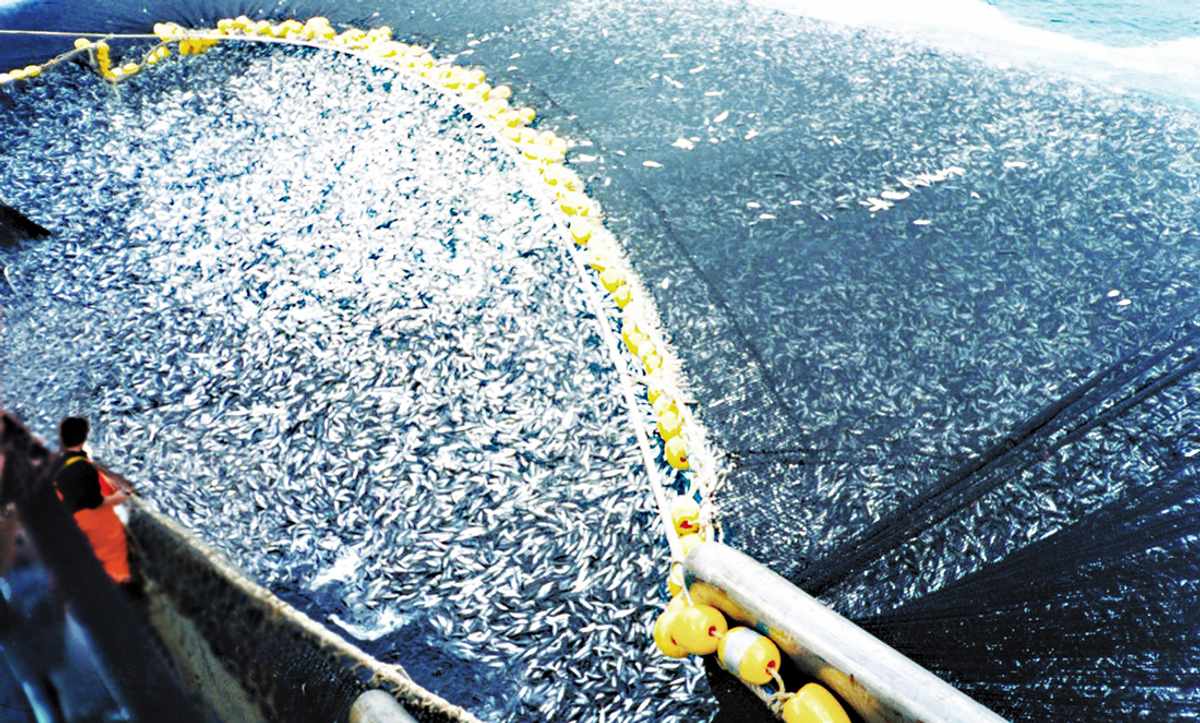Humans are industrially exterminating fish at a catastrophic rate
Humans are industrially exterminating fish at a catastrophic rate

Last year, as many as 2 trillion fish were killed by humans (2000 billion). This number has been calculated by the team behind Fish Count using data from The Food and Agriculture Organisation (FAO). The FAO records the weight of fish caught by nation states broken down by the species of fish caught. So, for example, we know that in 2018 the UK caught 185,826 tonnes of Atlantic mackerel. Biologists have established average sizes and weights for different species so by dividing the total weight caught by the average weight of one fish we can establish an estimate of the number of animals killed.
Numbers are more important than tonnes.
The staggering scale of the biomass extracted from the oceans is hard to understand. Reporting on weights is how we think and talk about any raw material, for example, coal or timber. Of course, fish are different from coal in profound ways - principally, they are sentient. This means they are conscious - they think and feel. Fish live rich, complex lives under the water. When they are caught and killed by humans - they suffer. 185,826 tonnes is a lot of mackerel taken out of the sea. It is also approximately 450 million animals who had their lives brought painfully to an end.
It is inconceivable that humans would hunt wild land animals in the way that fish are hunted. Whether dredging the sea bottom, destroying whole precious ecological systems or trawling with enormous nets large enough to hold 13 jumbo jets - industrial fishing fleets violently hoist wild animals out of the water as the beginning of a painful and prolonged death. Some of the animals will be crushed or have internal organs rupture as they are yanked out of the depths. Others will slowly asphyxiate on the deck of the boat.
Disturbingly, the immense numbers of animals recorded as killed during these operations does not include bycatch or unreported catch. Sharks, rays, turtles, dolphins and other sea creatures that are caught in nets or lines to die slowly are not tallied up. They are tossed overboard. By the time a fish gets to the supermarket - there is a bloody trail of suffering in its wake.
It is clearly a challenge to reduce the suffering of fish caught in the wild, though stunners are now in use on some fishing boats. The same thing cannot be said for fish on fish farms. An increasing proportion of the fish now consumed by humans comes from aquaculture - systems designed and built to raise large amounts of fish for consumption. In these controlled environments it should be much easier to ensure that the animals do not suffer unnecessarily.
This principle of minimizing suffering is enshrined in European law - for example, the current EU slaughter regulation requires fish to be spared avoidable suffering during killing and related operations. Sadly, an undercover investigation carried out by Compassion in World Farming has exposed that this is often not the case. On fish farms across Europe, animals are suffering prolonged and agonising deaths. Equipment does exist to stun fish before slaughter and is used in some places but uptake for species such as seabass and seabream is low. Many aquaculture businesses do not want to take on the extra costs despite the immense suffering caused by their actions.
When the fish being farmed are carnivorous the welfare issues are magnified and extended. Carnivorous fish such as trout and salmon must be fed other fish to be raised on farms. There is now an enormous industry that captures wild fish solely for the purpose of turning them into fish feed for use in aquaculture. In total, up to 40% of all wild fish caught each year, measured in numbers not tonnes, are turned into feed. This huge quantity of fish is required because to raise a salmon to size for market can require in excess of 120 wild caught fish - all of whom will suffer whilst being caught. As it stands, fish farming is a controversial industry with a range of unresolved ethical issues.
Responding to this vast and little understood animal welfare catastrophe, Compassion in World Farming has launched its campaign - Rethink.Fish. The campaign seeks to raise awareness around fish and to celebrate their intelligence and lives. It also wants to see aquaculture incorporate modern science and find ways to raise fish without unnecessary suffering. This means ensuring their lives are decent and that their death is rapid.
With concerted pressure from the general public it is possible that we will see the first shops selling high welfare fish products over the coming years. In the meantime, animal lovers that want to see reduced suffering in fish have one option - eat fewer fish.
Take action at Rethink.Fish


